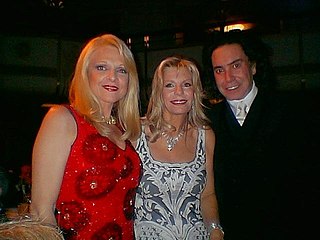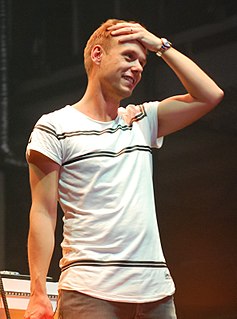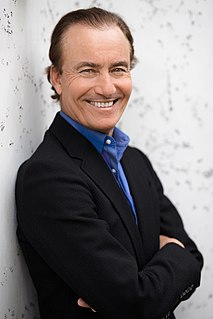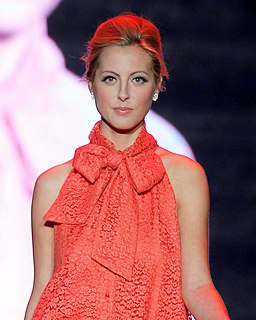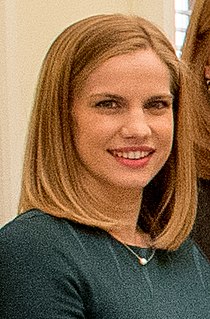A Quote by Yasmin Aga Khan
I was going to go to Europe to study, and that's when my mother's disease heightened, and it was really necessary that I step in. Then I said, okay, this is more important than my career in music.
Related Quotes
A physician who fails to enter the body of a patient with the lamp of knowledge and understanding can never treat diseases. He should first study all the factors, including environment, which influence a patient's disease, and then prescribe treatment. It is more important to prevent the occurrence of disease than to seek a cure.
I started on the clarinet. I was going to a music school - my mother took me - and the guy said, 'What do you want to play?' I said the drums, and my mother said, 'No, you don't. You don't want to play the drums.' So I said, 'Maybe the trumpet would be cool.' And my mother said, 'I don't think so.' And then the clarinet was handed to me.
When you get in the middle of a career and you're successful, people come and offer you things. My biggest fear was that if you try to do something else and you're trying to build your music career, and then you say, "I'm going to go do a movie," and you're terrible, you can really hurt your music career because as a musician, the goal is to be cool. You're playing the guitar and you're in front of all these people and your vibe is to be as cool as you can possibly be.
If you get attached, then it becomes an obsession. If the person is not there, you are unhappy. If you miss the person, you are in misery. And attachment is such a disease that if the person is not there you are in misery, and if the person is there you are indifferent. Then it is okay; it is taken for granted. If the person is there it is okay - no more than that. If the person is not there, then you are in misery. This is attachment.
In this case [the Charlemagne Prize], I don't say (I was) forced, but convinced by the holy and theological headstrongness of Cardinal [Walter] Kasper, because he was chosen, elected by Aachen to convince me. And I said yes, but in the Vatican. And I said I offer it for Europe, as a co-decoration for Europe, a prize so that Europe may do what I desired at Strasburg; that it may no longer be "grandmother Europe" but "mother Europe."
I thought, 'Okay, what's going to be my edge, and how am I going to define what I'm doing differently?' Once I had that key idea of the software developer as an artist, once I had that idea, a whole bunch of other ideas flowed from that, because I realized that I need to go study the music industry, I need to study the book publishing and Hollywood and figure out how they do things, why they do them that way, and then I need to borrow, and rearrange, the things that they're doing to fit my industry so that I can invent and create this new industry.
I think that in this globalised world, the local is going to become more and more important - it is a paradox. You see it in Western Europe more and more. Eastern Europe is still coming out of the Soviet uniform cultural era, but this kind of separation and nationalism is very obvious now in Western Europe.
Day-to-day scheduling is always a conflict. You go, "Oh, I want to go to that awards show because when am I ever going to do that again?" But then you go, "Yeah...except this other thing is more important." It's more the micro day-to-day stuff that becomes a daily task as opposed to worrying too much about the career.
I remember Anthony Perkins saying, "Real is not necessarily interesting." So real is not enough. But what happens as an actor is that you're really trained to listen and to be open and have empathy. It's such a natural consequence that you end up being more political. You can empathize with the mother whose kids are going to be sent to Iraq, or you can emphasize with the mother who is losing their child to a disease. How could you not then be active? So you're automatically drawn to that aspect in the rest of your life.
